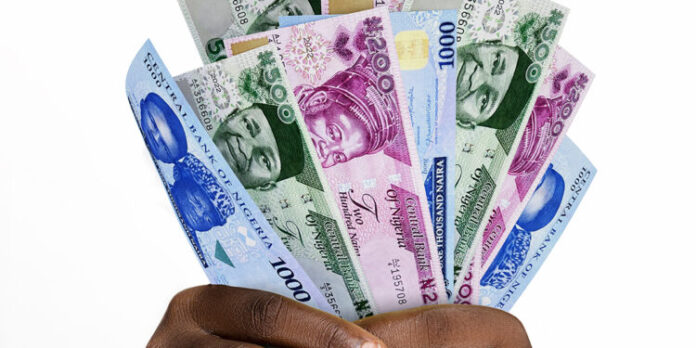Despite over $17 billion robust supply of the United States dollars in the Foreign Exchange (FX) Market which helped to shore up the naira to a little above N1000/$ this year, indications have emerged that the local currency had begun to fall faster last week.
The weakening is attributable to renewed attack from Cryptocurrency traders who manipulate the exchange through other Crypto exchanges other than Binance, to cause a depreciation in value of the naira.
Data from FMDQ Securities Exchange shows a $6.16 billion year-on-year increase in FX market turnover
In the first quarter (Q1) 2023, the Importers and Exporters (I&E) had a turnover of $6.52 billion, compared to $12 billion NAFEM turnover in Q1 2024.
Added to this, in the first 17 days of April, NAFEM has already had a turnover of $5.258 billion.
Before Friday’s slight rebound, the naira, last week Thursday continued its downward trend against the United States dollar, depreciating to N1, 309/$ at the official market and N1,420 at the parallel market
Currency traders, known as Bureau de Change (BDC) operators, quoted the buying rate at N1,260 and the selling price at N1,320/$ depending on the market and time of transaction.
At the official window, the local currency depreciated by 2.24 percent to N1,339.23 against the dollar on Friday, from N1,309.88 on April 25.
According to FMDQ Exchange, a platform that oversees the Nigerian Autonomous Foreign Exchange Market (NAFEM), also known as the official window, during trading hours, a dollar was sold as high as N1,410 and at a low rate of N1,051 despite Friday’s April 26 $309.01 million daily market turnover.
A Crypto trader who prefers anonymity said there are other platforms traders are using in such a way that once the USDT starts rising on any scheme popularly called the peer-to-peer (“P to P”) the exchange rate of the naira starts depreciating at both official and parallel market windows.
“The truth is that some people like we all know bought dollars at N1,800/$ and above in the first quarter of this year. Some are still reluctant to sell. So, rather than lose, they have devised the means to once again manipulate the exchange rate to get dollar rise again to a point they can resell and reduce their losses or even make gain,”
Experts who described P2P as a financial trading scheme that has operated outside the official banking and financial corridors are concerned that a looming disaster that could further crash the Naira value has started creeping in gain.
Recently, the Federal Government, through the Nigerian Communications Commission blocked the online platforms of Binance and other crypto firms to avert what it considered persistent manipulation of the forex market and illicit movement of funds, with one of the accounts said to have traded over $15 billion in the past year.
It also detained two senior executives of Binance, a cryptocurrency exchange amidst efforts by the government to rein in speculation on the naira by cracking down on cryptocurrency exchanges.
While the websites of Binance, Coinbase, and Kraken have been inaccessible in the country, reports said crypto traders now use alternatives like Bybit, Bitget, Kucoin, and Coincola and messaging platforms like Telegram which comes with an in-app wallet to make transactions.
But highlighting the measures being taken to protect the naira and stimulate the economy, the Chairman, Economic and Financial Crimes Commission (EFCC) Ola Olukoyede said about 300 FX accounts have been frozen to ensure the safety of the foreign exchange market and protect the economy.
Forex trading volumes between a willing seller and a willing buyer experienced a significant increase of 61 percent, with transactions reaching $318.08 million, exceeding the $197.54 million previously recorded at the Nigerian Autonomous Foreign Exchange Market on Wednesday.
Liquid reserves declined 5.6 percent since March 18, when the naira started its rebound from record-low levels against the dollar to $31.7 billion as of April 12, according to Bloomberg’s calculations based on the latest available data from the CBN.
That’s the biggest decline in a similar period since April 2020, according to data compiled by Bloomberg.
“It is not our intention to defend the naira,” Cardoso said on Wednesday during an event at the spring meetings of the International Monetary Fund and World Bank in Washington.
“The shifts you’ve seen in our reserves have really little or nothing to do with defending any naira and that’s certainly not our objective.”
He said the shift in the reserve is what is found in “any country’s reserves situation, where for example, debts are due and certain payments need to be made, and they are made because that is also part of keeping your credibility intact.”
“We are looking toward ensuring that we have a market that operates on its own: Willing buyer. Willing seller. Price discovery,” he said. “Ultimately, I perceive a future where the central bank will really not need to intervene except in very, very unusual circumstances. What is important to us is that there’s sufficient liquidity in the market.”




